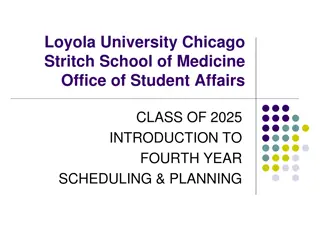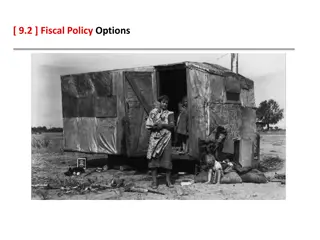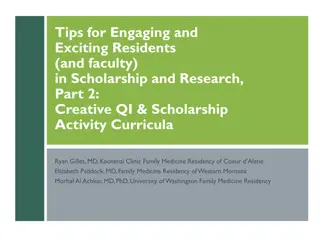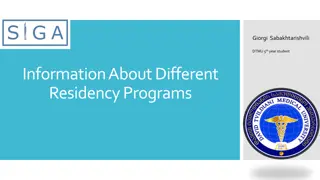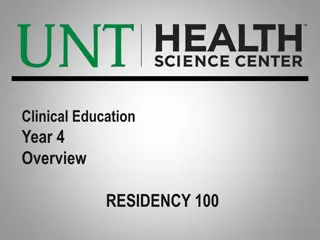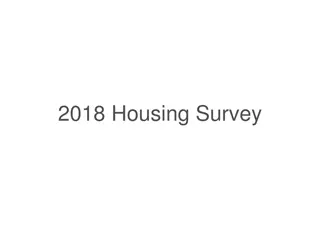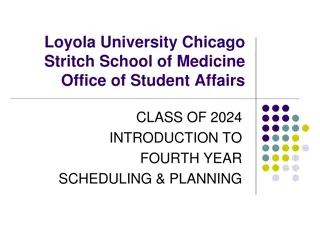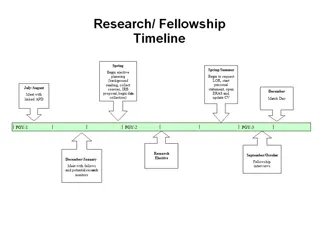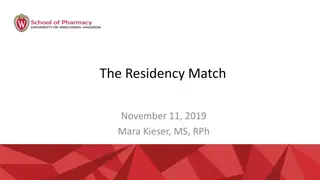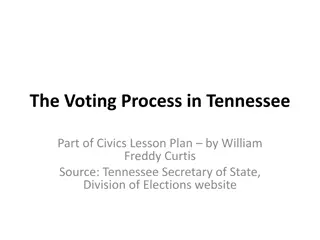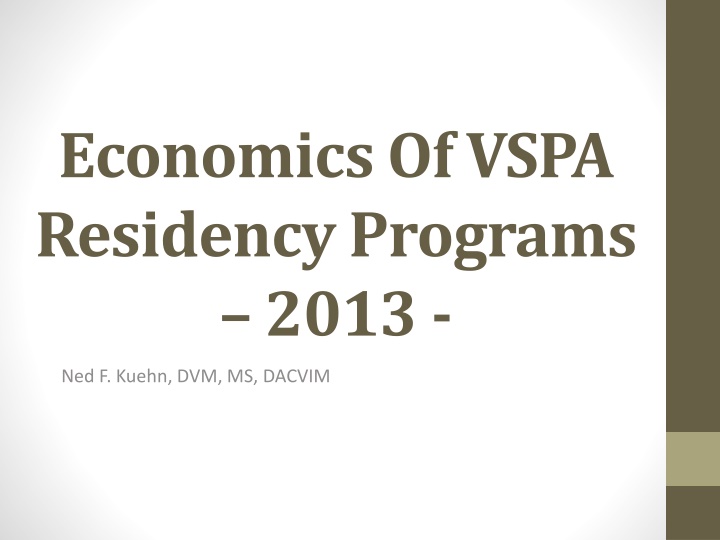
VSPA Residency Programs Economics Overview
Explore the economics of VSPA residency programs in 2013, including responses to surveys, annual salaries, benefits for residents, compensation structures, and allocation of resident salaries between specialty departments. Understand the monetary rewards for senior clinician participation in residency training.
Download Presentation

Please find below an Image/Link to download the presentation.
The content on the website is provided AS IS for your information and personal use only. It may not be sold, licensed, or shared on other websites without obtaining consent from the author. If you encounter any issues during the download, it is possible that the publisher has removed the file from their server.
You are allowed to download the files provided on this website for personal or commercial use, subject to the condition that they are used lawfully. All files are the property of their respective owners.
The content on the website is provided AS IS for your information and personal use only. It may not be sold, licensed, or shared on other websites without obtaining consent from the author.
E N D
Presentation Transcript
Economics Of VSPA Residency Programs 2013 - Ned F. Kuehn, DVM, MS, DACVIM
Economics Of VSPA Residency Programs 16/17 Responses to survey VSPA Hospitals Having Residency Training Programs: Yes 11 68.7% No 5 31.2% VSPA Active Residency Programs: Critical Care - 3 Internal Medicine - 3 Surgery - 3 Cardiology - 1 Neurology - 1 Ophthalmology - 1
Economics Of VSPA Residency Programs Annual Salary For Residents: No Response 5 31.2% (11 Programs) $25-30K $30-35K $35-40K $40-45K 2 3 3 3 12.5% 18.7% 18.7% 18.7%
Economics Of VSPA Residency Programs Benefits For Residents: No Response Vacation/Sick/Holiday (Paid) Health Insurance Dental Insurance Disability Insurance Retirement Pet Care Other 5 9 81.8% 5 3 7 10 4 31.2% (11 Programs) 81.8% 9 45.5% 27.2% 63.6% 90.9% 36.6% Miscellaneous Benefits: CE allowance Scrub/Uniform allowance Professional liability insurance Stipend to offset health insurance
Economics Of VSPA Residency Programs How The Residents Earn Compensation: Straight salary (7) with variations Work one day per week on emergency service Shared duties (rotations) on emergency service Resident salary figured into department budget Certain fees for services are charged directly to resident Base salary with bonus for after-hours procedures performed Credit for all patients seen directly by resident (Referral service and ER)
Economics Of VSPA Residency Programs Allocation Of Resident Salary Between Specialty Departments: Allocated to department hosting residency (6) Due to organizational structure salaries not allocated between specialties ER service duties covers salary Credit for all patients seen by resident on referral service
Economics Of VSPA Residency Programs Monetary Rewards For Senior Clinician Participation In Residency Training: No Response 5 31.2%(11 Programs) Monetary Compensation No Monetary Compensation Other 5 5 1 31.2% 31.2% 6.2% Receive resident production except when on ER duty 25% or remaining revenue after residents have produced 4X salary is divided between the hospital and specialists on their service Bonus given to senior clinicians for participating in the residency program Once resident s salary and costs have been covered by revenue produced, the remainder is split among the specialists involved in the training Charges for services provided by resident being directly supervised by the senior clinician are credited to the senior clinician
Economics Of VSPA Residency Programs Allocation Of Revenue When A Resident Handles A Case Alone With No Direct Supervision: Practice owners To the hospital To the resident goes towards paying resident salary
Impediments To Residency Programs Strong internship program that serves current needs Lack of interest on part of specialists Not interested in providing residency training Specialists feel that in order to run a residency training program you need to hone their skill to take a test Do not have the time to adequately devote to residency training
Benefits Of Residency Program Service support Ability to handle greater caseload Future residents for the organization Retain desired candidates post-residency Personal satisfaction from training & educating residents Leverage specialists time by performing treatments, completing paperwork, getting cases started or finished, sharing the myriad of workload responsibilities Participation in on-call schedule Better communication with clients Less paper work for specialist better quality of life Continued
Benefits Of Residency Program Free-up specialists to see more appointments and do more procedures Help with training of interns Take phone calls from primary veterinarians Facilitate client and primary care veterinarian communications Allow me to leave earlier than I might otherwise Weekend coverage for ER consultations, ultrasound, endoscopy Provides an academic setting in private practice Assists with specialist recruitment Improves hospital income and assistance
Liabilities Or Problems With Residency Training Time commitment to mentor and train residents The occasional underperforming resident is a problem When there is an underachieving resident, at least we only experience them for 2 weeks at a time Inexperience Clients and primary care veterinarians do not feel they are getting the highest standards in patient care Clents and primary care veterinarians feel that patients are being learned on Hard to show financial benefit and may be a liability financially Lack of time and support of the residents by other specialists Continued
Liabilities Or Problems With Residency Training Academic training is not as respected by the residents and instead want to focus more on clinical duties Training time, performance of individuals, commitment, HR issues associated with another employee Publication requirement being done on time Occasional wrong communications or skewed case management Additional work for program administration The additional requirements for residency training programs, as outlined by the certifying college, causes scheduling problems during out-rotations None to date
More Work Or Valuable Assistance Having A Resident Add valuable assistance greatly improved my lifestyle (x3) More work (x3) Entirely depends upon the individual and their level of training First year residents (and sometimes into their second year) can require more hands on training and guidance that can slow down the normal daily schedule Client communications, medical records, patient treatments (bandage changes, wound care, beginning and closing a surgery) are ways in which a resident can add valuable assistance In the beginning they make more work, but as they progress there is less work Continued
More Work Or Valuable Assistance Having A Resident They make more work because they must be taught and this takes time Often they are in the hospital later getting paperwork done and perform after hours emergency cases requiring specialist input A good resident should add value to the practice by freeing up the specialists to see more cases and give better client service Depends on year and attitude of the resident on average they help Valuable assistance to completion of case management More work if a problem arises in case management or client or primary care veterinarian communication
Elimination Of Residency Programs Do you have a residency training program? (n=16) Yes 11 (68.7%) NO 5 (31.2%) Are you considering eliminating or scaling back current residency training programs? (n=16) Yes 0 (0%) No 8 (50%) Other 2 (12.5%) No response 6 (37.5%) Depends on department Not interested at this time in an ongoing residency program




